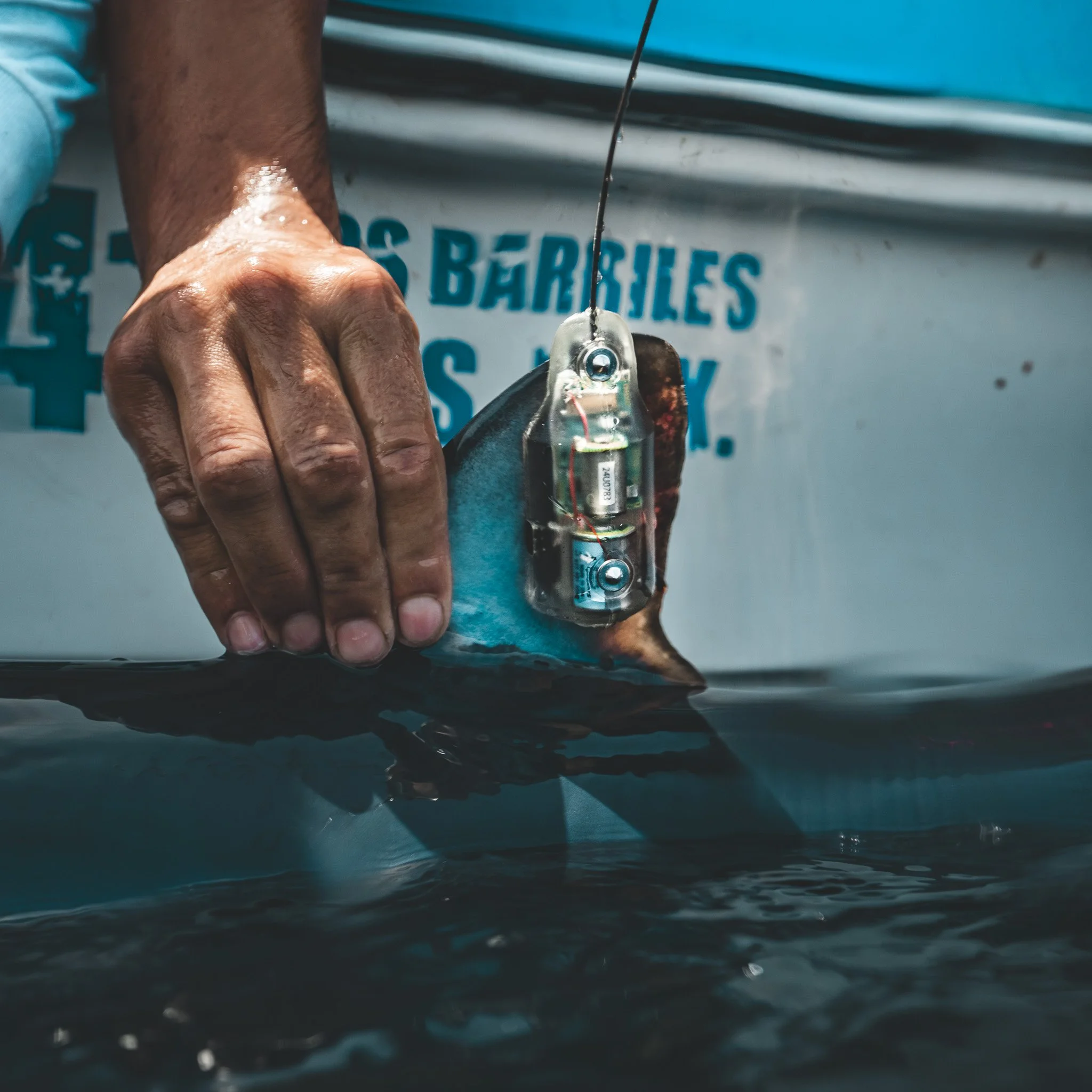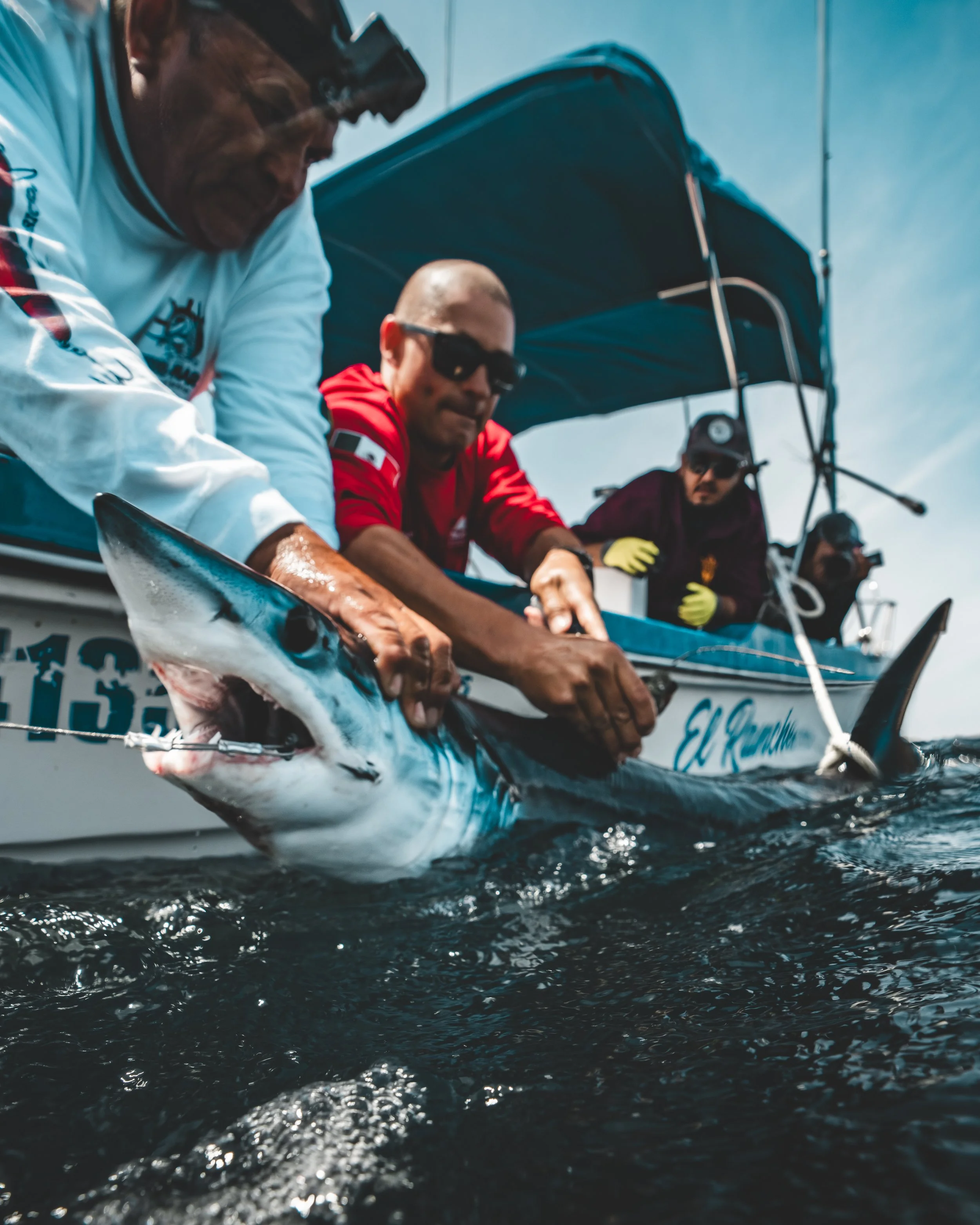MAKO SHARK RESEARCH
In association with Shark Research Mexico, Baja Shark Experience and Orgcas, we’re currently conducting a long term research about Mako sharks, their movement, migration and behavior in Baja California Sur, Mexico.
PROJECT TEAM
-
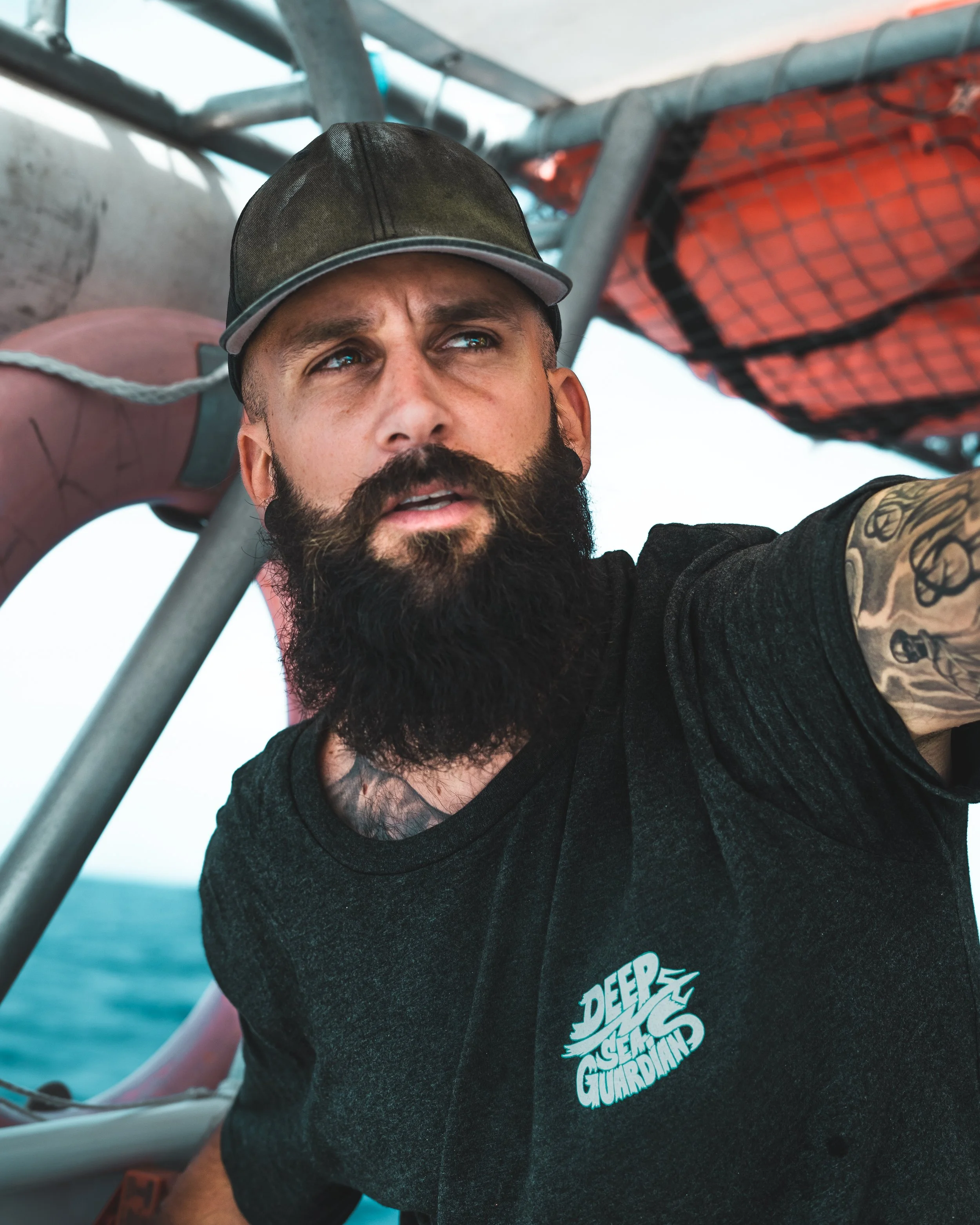
ZIMY
Coordinator, film director, photographer, shark handler
@zimydakid
-
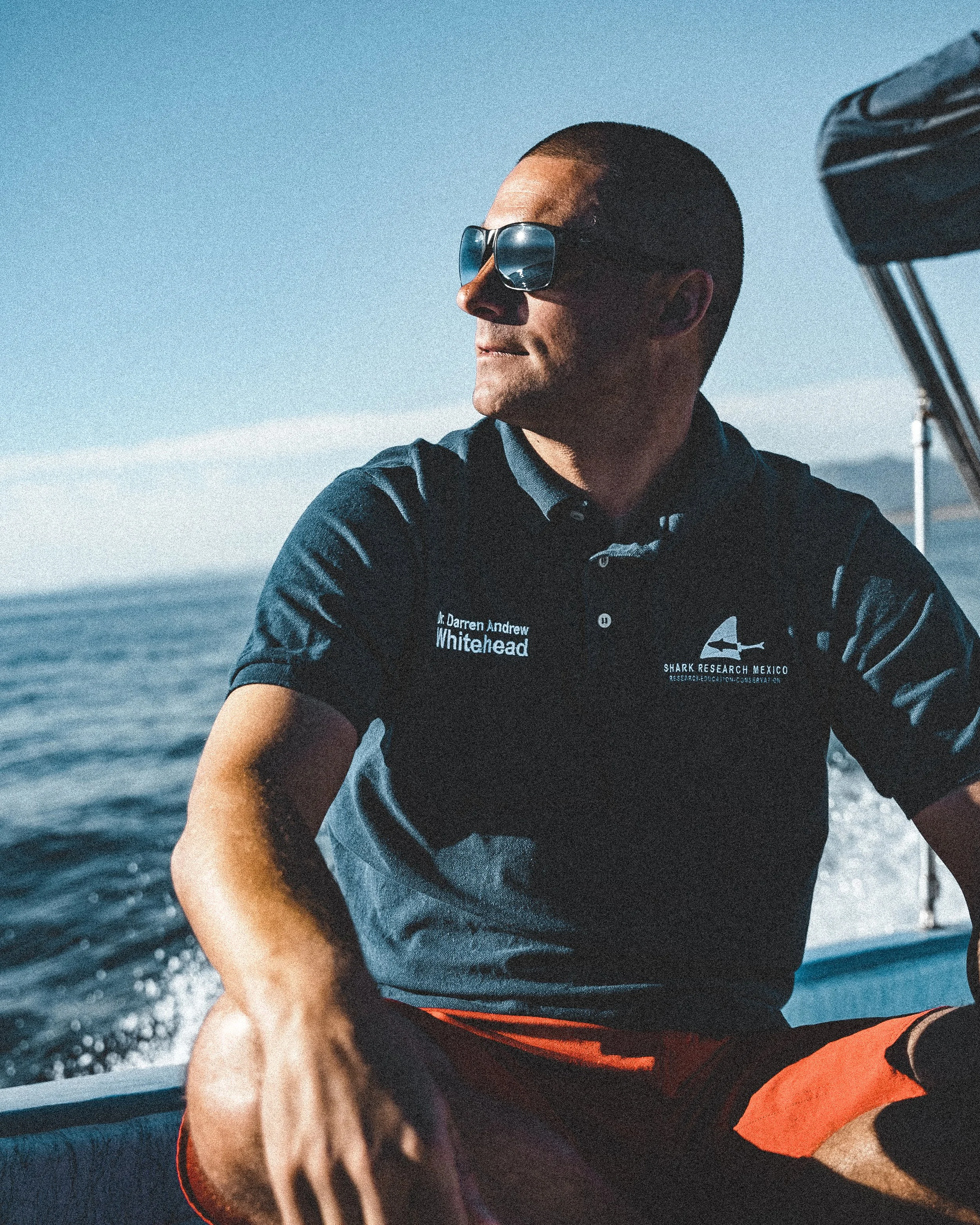
DR. DARREN WHITEHEAD
Coordinator, lead scientist
@darrenandrew.whitehead
-
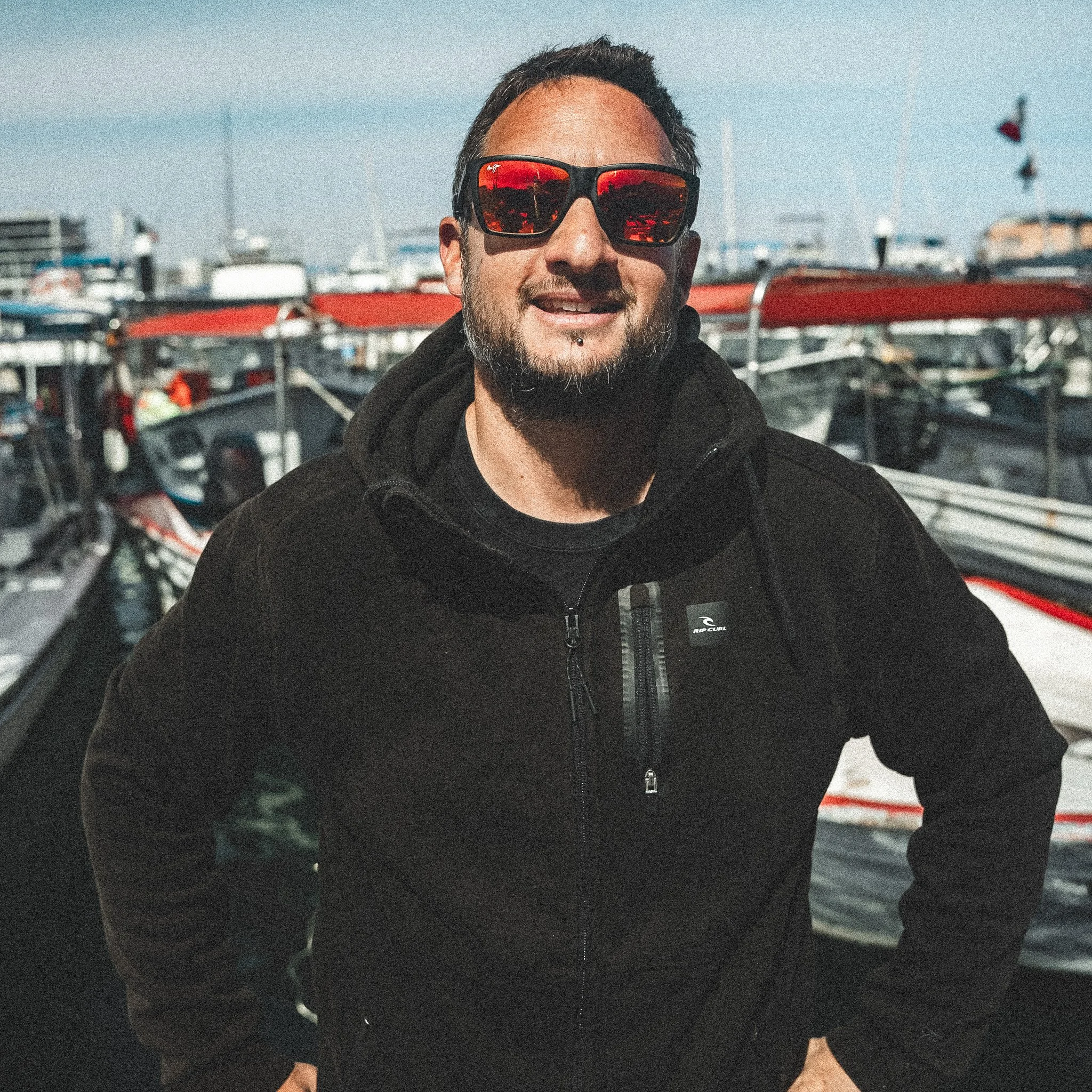
EVANS BAUDIN
Local shark expert, photographer
@evansbaudin
-
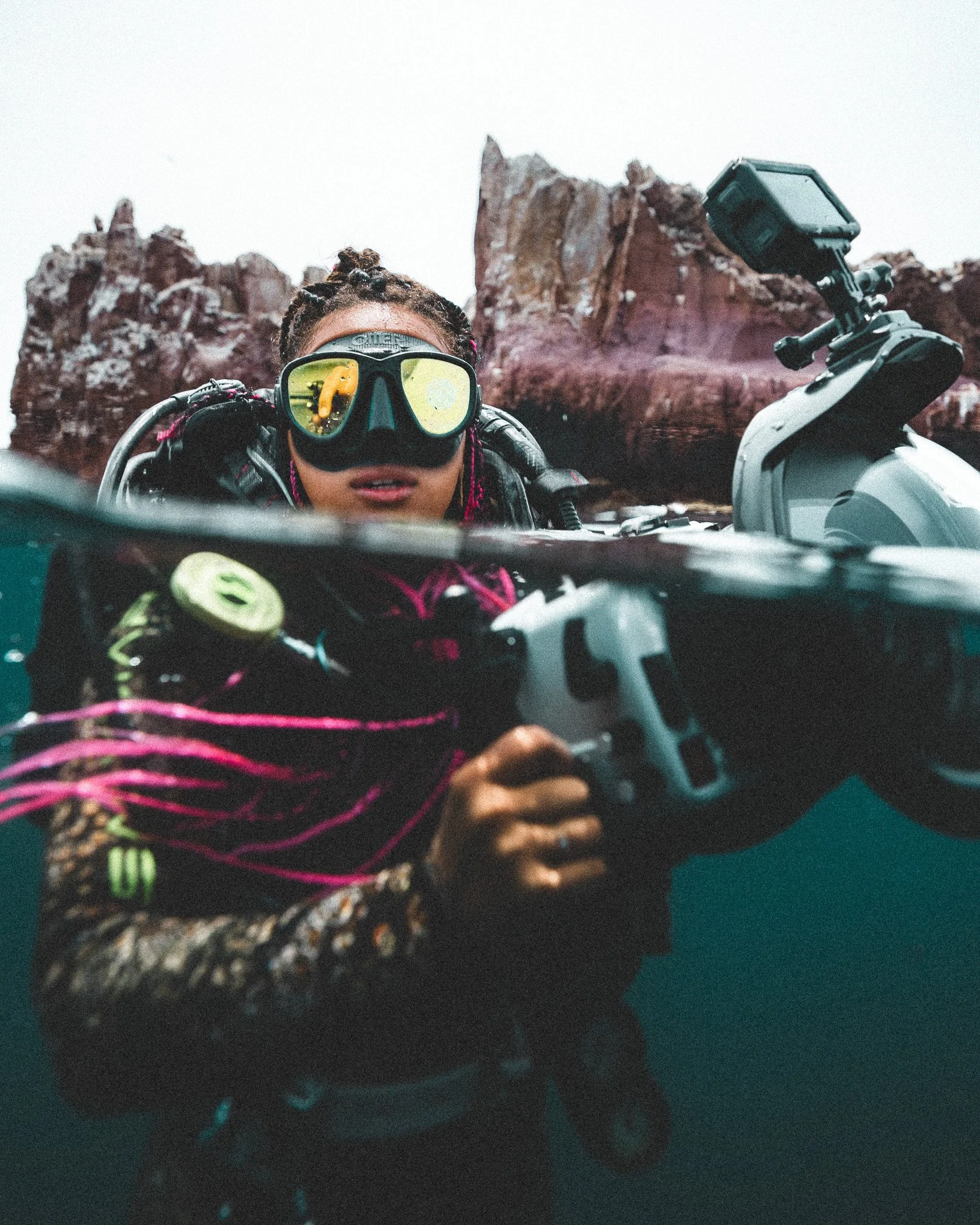
GAIL NYFF
Camera operator, photographer
@gailthebrave
-

GABO VELAZQUEZ
Local shark expert, shark handling assistant
@gabovlzqz
-
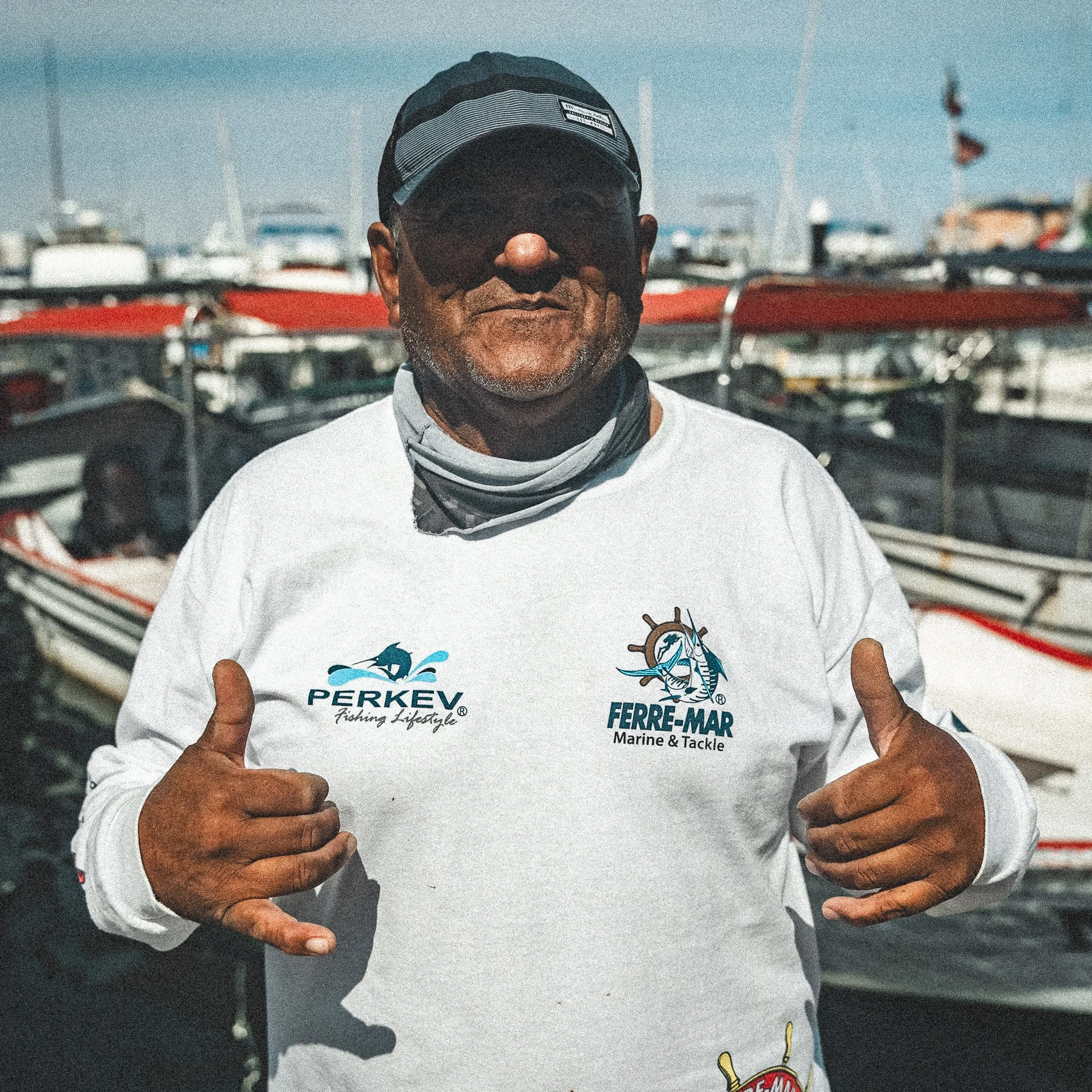
CACHAS
Shark fisherman
-

PANCHO
Shark fisherman
-

FRIDA LARA
Scientist
@fridalaral
TAGGING MAKO SHARKS
GPS Satellite tags are small devices that, once placed on a shark, allow us to track their movement in order to study their behavior and migration.
Being able to put a satellite tag on this specific species of shark is very challenging for a lot of different reasons.
First of all, we need to find a shark. Makos are pelagic sharks meaning that they live in the open ocean and spend their entire lives swimming and migrating. Therefore, it makes it extremely difficult to find them.
Once we find a shark, the next step is to hook the shark.
As you can guess, Makos aren’t the only ones around; there can be other species around like Blue sharks or Silky sharks for example.
We constantly have someone in the water to check the baited hook in order to make sure we hook a Mako and not another species !
Dealing with the rough sea conditions, the current, the bad visibility and all the sharks around can make things even more difficult.
Once hooked, the true countdown starts because we have to be extremely efficient in order to minimize the stress caused to the animal.
Once the shark is tightly attached to the boat, we can start the tagging process: drill 2 holes in the Mako’s dorsal fin, place the tag, screw it, cut the hook and safely release the shark !
Mission accomplished !
5 MAKOS TAGGED
We’ve already tagged 5 makos sharks in the Gulf of California which had never been done before in this area !
3 makos were tagged in April 2023 and 2 more in April 2024.
In order to tag the sharks, we have to first hook them. This is why we’re collaborating with local shark fishermen. Once hooked, the sharks are then attached to the side of the boat in order to attach the GPS tag on their dorsal fin.
The operation has to be done as quickly as possible in order to minimize the stress caused to the animal.
Once done, all 5 sharks swam away safely.
FIRST RESULTS
All 3 sharks we tagged in 2023 were juveniles: first one was 1.60m, second one 2.10m and last one 1.40m.
Same in 2024, all juveniles: a 1.30m male and a 1.10m female.
On May 11th, 2023, one of the shark stopped transmitting signal.
20 days later, on May 31st 2023, a second shark stopped transmitting.
After checking with the manufacturer who confirmed that the battery life was still good, we can confirm that both sharks got fished.
From beginning of May until end of June or July, depending on the exact area, it is not allowed to fish for sharks in these waters meaning that our sharks that got caught were not killed by local artisanal fisheries but by big industrial fisheries operating in international waters.
This further shows the huge impact of industrial fisheries, even during a shark fishing ban.
In August 2023, after the fishing ban, our 3rd mako of 2023 got fished as well.
In 2024, same fate for our first mako that got fished only 3 weeks after being tagged.
At the time of writing (May 2024), we still have 1 shark traveling and transmitting signals.
A CHARISMATIC AND ENDANGERED SPECIES
We decided to study this specific species of sharks for several reasons.
Among them, the fact that these sharks are a very charismatic species and could be used to protect entire areas, and therefore, other marine species.
Moreover, these sharks have never been tagged in that area so very little is known about their movements and behavior.
But above all, Mako sharks are highly threatened by fisheries.
Mako sharks, specifically the shortfin mako (Isurus oxyrinchus) and the longfin mako (Isurus paucus), are considered to be endangered species. Several factors contribute to their declining population:
Overfishing: Mako sharks are highly valued for their meat, fins, and jaws. They are targeted by commercial and recreational fisheries due to their large size, speed, and the high market demand for their products. Overfishing has significantly depleted their numbers, as they reproduce at a relatively slow rate and cannot withstand intensive fishing pressure.
Bycatch: Mako sharks are often caught incidentally in fishing gear targeting other species, such as longline and gillnet fisheries. They are susceptible to entanglement in nets and can drown if unable to escape. Bycatch is a major threat to mako sharks and can result in significant mortality.
Reproductive vulnerability: Makos have a slow reproductive rate compared to other shark species. They reach sexual maturity at a late age (around 8-18 years) and have relatively few offspring per litter (up to 18 pups). This slow reproductive rate makes them particularly vulnerable to population declines caused by overfishing.
Habitat loss: Mako sharks are highly migratory and rely on specific habitats for feeding and reproduction. Overfishing and habitat degradation, such as the loss of coral reefs and destruction of coastal habitats, can disrupt their natural behavior and reduce available food sources.
By conducting such researches, it’ll help us better understand how they live and what they rely on to survive in order to better protect them in the future.
WHAT’S NEXT ?
We currently still have sharks transmitting signals so we’re still tracking their movements.
We’re also working on analyzing all the data and will release a scientific paper soon.
If you want to support our work and research, you can reach us at info@deepseaguardians.org or use the contact form here.
THANKS TO OUR PARTNERS FOR THE SUPPORT
A big thanks to Insta360 for supporting our shark conservation work and for helping us by partially funding the tags.

